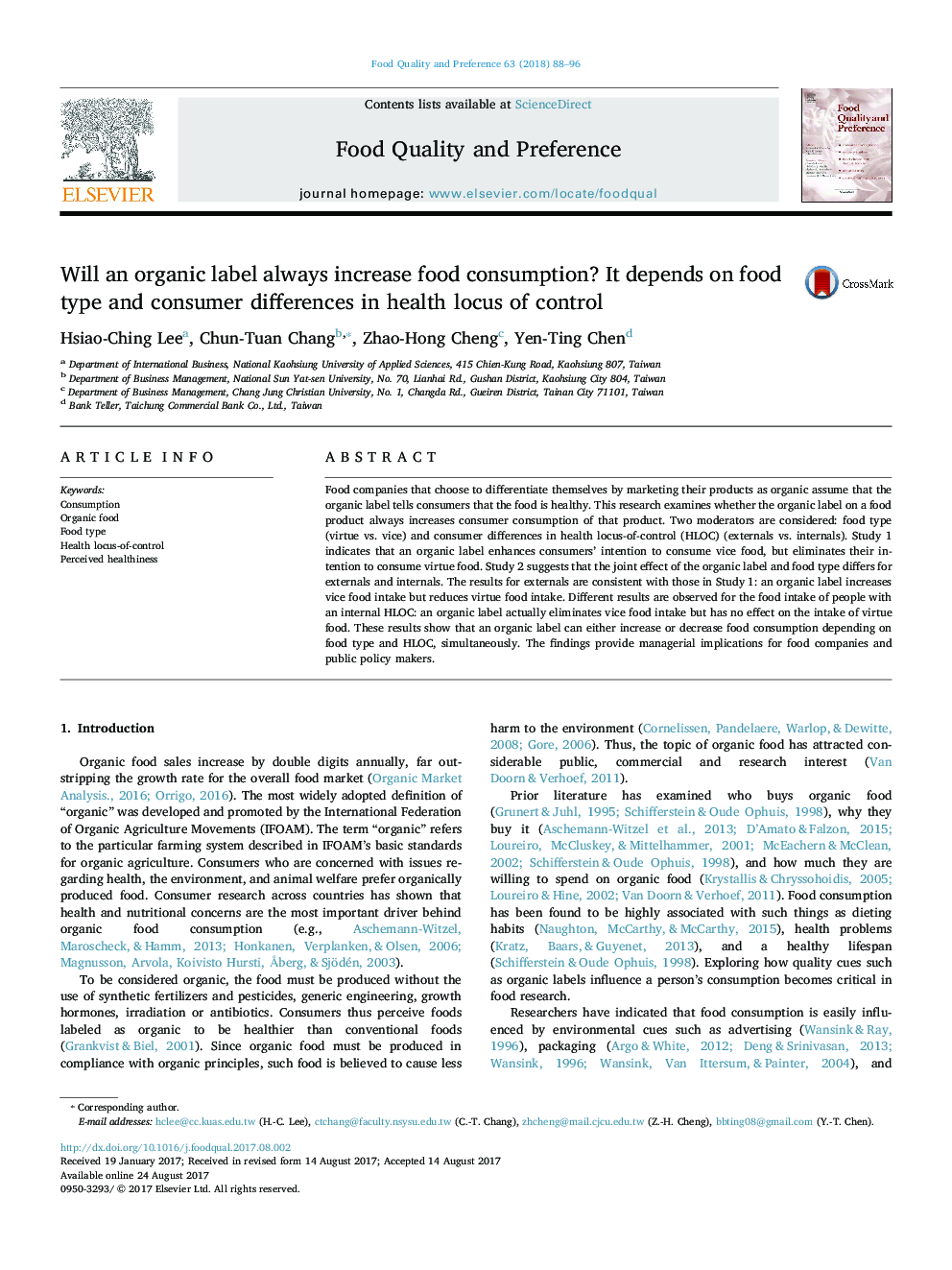| Article ID | Journal | Published Year | Pages | File Type |
|---|---|---|---|---|
| 5735938 | Food Quality and Preference | 2018 | 9 Pages |
Abstract
Food companies that choose to differentiate themselves by marketing their products as organic assume that the organic label tells consumers that the food is healthy. This research examines whether the organic label on a food product always increases consumer consumption of that product. Two moderators are considered: food type (virtue vs. vice) and consumer differences in health locus-of-control (HLOC) (externals vs. internals). Study 1 indicates that an organic label enhances consumers' intention to consume vice food, but eliminates their intention to consume virtue food. Study 2 suggests that the joint effect of the organic label and food type differs for externals and internals. The results for externals are consistent with those in Study 1: an organic label increases vice food intake but reduces virtue food intake. Different results are observed for the food intake of people with an internal HLOC: an organic label actually eliminates vice food intake but has no effect on the intake of virtue food. These results show that an organic label can either increase or decrease food consumption depending on food type and HLOC, simultaneously. The findings provide managerial implications for food companies and public policy makers.
Related Topics
Life Sciences
Agricultural and Biological Sciences
Food Science
Authors
Hsiao-Ching Lee, Chun-Tuan Chang, Zhao-Hong Cheng, Yen-Ting Chen,
